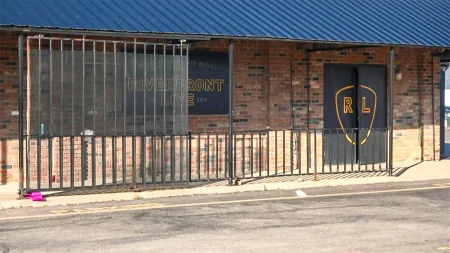Senator’s Unusual Speech Links Radioactive Shrimp to Alien Transformation
In an unconventional address that blended science fiction with food safety concerns, Louisiana Senator John Kennedy delivered a memorable speech on the Senate floor last week, warning Americans about the dangers of imported seafood. Standing beside an enlarged image of the creature from the movie “Alien,” the 73-year-old Republican senator made startling claims about radioactive shrimp that had been recalled from supermarkets in late August. While the FDA confirmed these shrimp contained the radioactive isotope cesium-137 and posed an increased cancer risk, Kennedy’s warnings ventured into more fantastical territory. “It will kill you. Even if it doesn’t turn you into the alien if you eat this stuff, I guarantee you will grow an extra ear,” he declared, as a staff member attempted to maintain composure beside him. This theatrical presentation represented more than just colorful rhetoric – it highlighted growing concerns about food imports and safety standards across national borders.
The senator’s speech was fundamentally about promoting American-produced goods, particularly from his home state of Louisiana, which alongside Texas is one of the country’s largest shrimp producers. Kennedy openly acknowledged his bias, stating, “I believe in homegrown Louisiana shrimp, fresh out of the Gulf, not radioactive.” His core argument centered on countries that “don’t abide by the same rules that we abide by in America,” making unsubstantiated claims that foreign producers “shoot the shrimp full of antibiotics” and suggesting consumers don’t notice because they “become resistant to certain bacteria” after repeated consumption. The economic undertones were clear as Kennedy connected the lower price point of imported shrimp to alleged lower safety standards: “Now we know why: The damn stuff is radioactive.” This approach of using alarming imagery to promote domestic products reflects a growing protectionist sentiment that has gained traction in American politics.
Kennedy’s presentation quickly gained traction online after he shared it on his X (formerly Twitter) account, amassing 1.5 million views since its posting. Public reaction was predictably divided along political lines. Critics accused the senator of “fear-mongering” and using the spectacle to distract from more pressing national issues. Others, however, found themselves reluctantly agreeing with his underlying message that American consumers should prioritize domestically harvested produce. The viral nature of the speech demonstrates how political messaging has evolved in the digital age, where theatrical performances and striking visuals can amplify a politician’s reach far beyond the Senate chamber. Whether viewed as responsible advocacy or political theater, Kennedy’s presentation effectively captured public attention in ways traditional policy speeches rarely achieve.
This is not the first time Senator Kennedy, who has represented Louisiana since 2017, has made headlines with his colorful commentary on national issues. Following the deadly shooting at the NFL headquarters in Manhattan in July, Kennedy argued that America needs “idiot control” rather than stricter gun control legislation, though he admitted he didn’t “know exactly how to do that.” When addressing anti-ICE protests in Los Angeles, he advised Democrats upset about President Trump’s intervention to “pop a Zoloft,” referring to an antidepressant commonly prescribed for anxiety, depression, and OCD. These statements reflect Kennedy’s distinctive communication style that combines folksy expressions with provocative rhetoric, making him a memorable and quotable figure in contemporary American politics, even when his statements stray from scientific accuracy.
The radioactive shrimp incident that inspired Kennedy’s speech does highlight legitimate concerns about food safety and international trade. The FDA’s recall of contaminated shrimp containing cesium-137 represents a real public health issue, though not one that would result in the science fiction scenarios Kennedy described. Cesium-137 is a radioactive isotope that can increase cancer risk through exposure or consumption, created primarily through nuclear fission in power plants and weapons testing. The recall demonstrated the importance of robust inspection systems for imported foods, an issue that transcends partisan politics. However, by framing the discussion in terms of national competition rather than global cooperation on food safety standards, Kennedy’s approach may have missed an opportunity to advocate for stronger international protocols that would benefit consumers worldwide.
In many ways, Kennedy’s theatrical presentation epitomizes the evolving nature of political communication in America, where attention-grabbing statements and visual props often overshadow nuanced policy discussions. His willingness to blend entertainment with advocacy creates memorable moments that stand out in today’s crowded media environment. While scientists and health experts might cringe at the scientific inaccuracies in his statements about radiation effects, Kennedy’s core message about supporting domestic production resonates with many constituents concerned about food safety and American jobs. The performance raises important questions about the balance between effective communication and factual accuracy in political discourse. As Americans increasingly receive their information through social media clips and viral moments, Kennedy’s approach – however scientifically questionable – demonstrates an understanding of how to capture public attention in the digital age, for better or worse.











